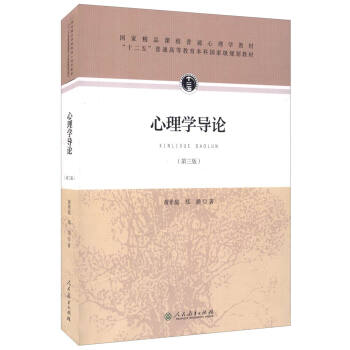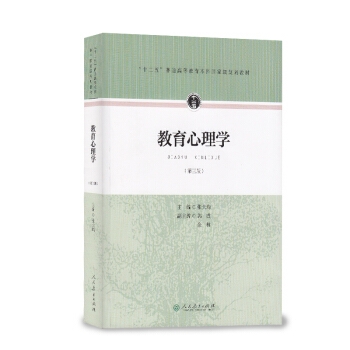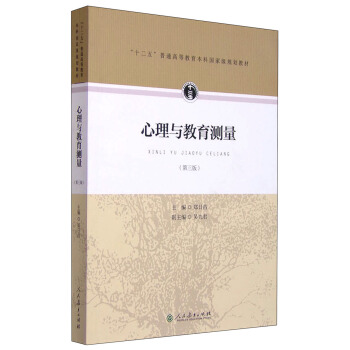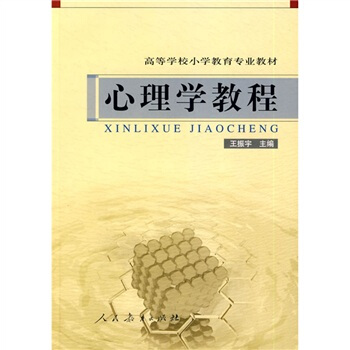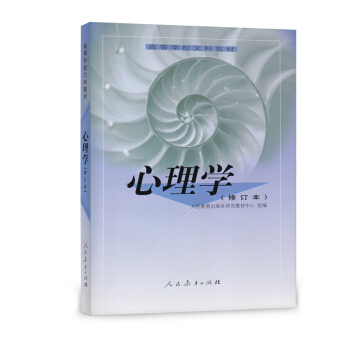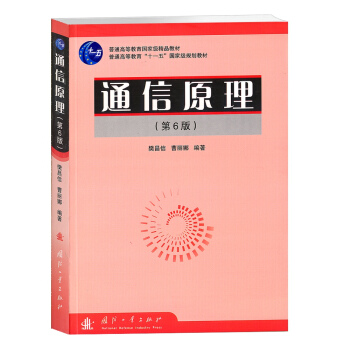

具体描述
内容简介
《语言学教程(第4版)精读精解》专门针对英语专业本科和备考研究生的学生编写,用相对通俗易懂的语言表达其要点,概括重点,译文对照,并提供习题参考答案。自出版以来,因针对性强,受大广大读者的欢迎,现根据语言学教程的发展和变化,对相关章节和部分作出调整和修订,以便适合读者的需要。
作者简介
廖美珍,华中师范大学外国语学院教授、语言研究所所长、副院长。现为中国语用学协会常务理事。学术方向为语用学、话语分析、法律语言学、隐喻研究、翻译研究。学术代表理论是“目的原则”和目的分析。发表作品有“Metaphor as a Textual Strategy in English”,《语言与法律翻译丛书》等。
内页插图
精彩书评
★本书以胡壮麟《语言学教程》(第四版)为蓝本,吸取国内外语言学研究的最新理论和成果,全面阐述了理论和应用语言学领域的内容,阐述方式深入浅出、脉络清晰,利于教师和学生自学参考。本书适合高校英语专业本科学生及语言学相关专业考研学生。
——上海外国语大学小语种培训中心
目录
第1章 语言学导论(Invitations to Linguistics)
本章要点
参考译文
1.1 为什么学习语言?
1.2 什么是语言?
1.3 语言的本质特征
1.3.1 任意性
1.3.2 二重性
1.3.3 创造性
1.3.4 移位性
1.4 语言的起源
1.5 语言的功能
1.5.1 信息功能
1.5.2 人际功能
1.5.3 施为功能
1.5.4 情感功能
1.5.5 寒暄功能
1.5.6 娱乐功能
1.5.7 元语言功能
1.6 什么是语言学?
1.7 语言学的主要分支
1.7.1 语音学
1.7.2 音系学
1.7.3 形态学
1.7.4 句法学
1.7.5 语义学
1.7.6 语用学
1.8 宏观语言学
1.8.1 心理语言学
1.8.2 社会语言学
1.8.3 人类语言学
1.8.4 计算机语言学
1.9 语言学的一些重要区分
1.9.1 描写与规定
1.9.2 共时与历时
1.9.3 语言与言语
1.9.4 语言能力和语言应用
术语双解
重难点解析
强化练习
强化练习答案
第2章 语音 (Speech Sounds)
本章要点
参考译文
2.1 语言是如何产生的?
2.1.1 言语器官
2.1.2 国际音标
2.2 辅音与元音
2.2.1 辅音
2.2.2 元音
2.2.3 英语语音
2.3 从语音学到音系学
2.3.1 协同发音和标音
2.3.2 标音
2.3.3 音位变体
2.4 音位过程,音位规则和区别性特征
2.4.1 同化
2.4.2 插音,规则调整和别处的条件
2.4.3 区别性特征
2.5 超音段特征
2.5.1 音节结构
2.5.2 重音
2.5.4 声调
术语双解
重难点解析
强化练习
强化练习答案
第3章 词汇——词素到短语 (From Morpheme to Phrase)
第4章 句法——词语到篇章 (From Word to Text)
第5章 意义 (Meaning)
第6章 语言与认知 (Language and Cognition)
第7章 语言、文化和社会 (Language,Culture,and Society)
第8章 语言的使用 (Language in Use)
第9章 语言与文学 (Language and Literature)
第10章 语言和计算机 (Language and Computer)
第11章 语言学和外语教学 (Linguistics and Foreign ?Language Teaching)
第12章 现代语言学理论和流派 (Theories and Schools of Modern Linguistics)?
精彩书摘
除此之外,还有一些其他因素有助于我们识别词。(There are other factors which help us to identify words.)
(1)稳定性(stability)
在所有语言单位中,就其内部结构而言,词是最稳定的。(Words, concerning of their internal structures, are the most stable of all linguistic units.)一般说来,我们很难重新调整一个复合词的内部结构,使之具有一个不同的内部序列。例如,nothingness的语素不能被排列为*nessnothing,后者在英语中是不被接受的;同样,chairman也不能被排列为*manchair。但在一定程度上,句子成分却是可以改变次序的。
① 词也可用作发音单位和书写单位,像(ⅰ)语音的:/It Is ’wVndKfKl/;(ⅱ)拼写的:It is wonderful。每一个例子中都有三个词。然而,在平常说话或书写中,人们会分别用以下方式来表达同一个意思:(ⅰ)语音的:/It Is ’wVndKfKl/;(ⅱ)拼写的:It’s wonderful。这里有一个问题:当连音或简缩式出现时,如It’s[wonderful],而且它们在说话和书写确实经常出现,那么它们应当看作一个词还是两个词呢?
例3-4
a. John is a clever boy.
a’. A clever boy John is.
b. The chairman looked at the audience.
b’. The audience looked at the chairman.
(2)相对连续性 (relative uninterruptibility)
所谓连续性,是指即使一个词由几个部分构成,中间不能插入任何新成分。(By uninterruptibility, we mean that new elements should not be inserted into a word even when there are several parts in a word.)如disappointment这个词由三个部分构成:*dis (#) appoint (#)ment,但是这三个部分之间既不可插入任何成分,也不允许在各部分之间有任何停顿(pauses) (*dis appoint ment)。与此相反,在下面的并列主语(coordinating subject)中,我们可以插入“Jane”这个词:��
例3-5
Paul,(Jane) and Rebecca are my classmates.(保罗、(简)和丽贝卡是我的同班同学。)
有时,在极端的情况下,我们甚至可以在下面句子中的任何两个部分之间插入副词“even”。(In an extreme case, one could insert the adverb “even” between any two parts in the following sentence.)
例3-6
(Even) Paul (even) didn’t (even) love (even) Jane (even).
(3)最小自由形式(a minimum free form)
这种说法最初是由布龙菲尔德(Leonard Bloomfield)(1933)提出来的,他提倡(ⅰ)把句子看作“最大自由形式”(the maximum free form),(ⅱ)把词看作“最小的自由形式”(the minimum free form)。词是能单独构成完整语句的最小的单位。(This was first suggested by Leonard Bloomfield. He advocated that(ⅰ) sentence as “the maximum free form”and (ⅱ)word “the minimum free form”.Word is the smallest unit that can constitute, by itself, a complete utterance.)请看下面对话中的划线部分:
例 3-7
—Is Jane coming this evening? (简今晚来吗?)
—Possibly.(可能。)
像Hi (嗨)、Darling (亲爱的)、Bother (讨厌)、shit (屎)等之类的词语在这种情况下所起的作用相同。关于这种说法还有一场激烈的争论。反对者认为并非所有像词的单位都能符合这个标准,如英语的冠词a和the,就不能单独使用。然而支持者则引用了下面一个特殊的例句来说明自己观点的正确性(It is interesting to note that there is a heated discussion with respect to this statement. Some objects that not all word-like units would satisfy this criterion, as the article a and the in English cannot stand by themselves. But the advocators cite the following exceptions):
例3-8
—What is missing in a sentence such as“Dog is barking”?
—缺少A。(字母A。)
3.2.2 词的分类(Classification of words)
我们归纳词的共同特征的同时,也发现不同词之间存在着这样那样的差别。
(1)可变词和不变词(variable and invariable words)
词可以分为可变词和不可变词。可变词可以有形态变化。也就是说,同一个词会有不同的语法形式,但是该词的部分保持相对恒定。(Words can be classified into variable and invariable words. As for VARIABLE WORDS, they may have inflective changes. That is, the same word may have different grammatical forms but part of the word remains relatively constant.)
例3-9��
Follow mat
Follows mats
following
followed
在印欧语系里,拉丁语和梵语(Sanskrit)的可变词相对较多,德语次之,英语中最少。(Among Indo-European languages, one could find more variable words in Latin and Sanskrit, less in German, and the least in English.)
所谓不变词(invariable words)是指since、when、seldom、through、hello等一类的词,它们没有词尾形态变化(inflective ending)。
(2)语法词和词汇词 (grammatical words and lexical words)
词可以分为语法词和词汇词。那些主要用于建构词组、短语、从句、复合从句,甚至篇章的词称为语法词,如连词、介词、冠词和代词。而那些主要用于指称物质、动作和质量的词语是词汇词,如名词、动词、形容词和副词。由于词汇词承载了语言的主要内容,语法词把不同的语言片段连接起来,所以词汇词又称为实义词(content word),语法词又称为功能词(function word)。(Words can be classified into GRAMMATICAL WORDS and LEXICAL WORDS. Those which mainly work for constructing group, phrase, clause, clause complex, or even text are grammatical words, such as, conjunctions, prepositions, articles, and pronouns. And those which mainly work for referring to substance, action, and quality, such as nouns, verbs, adjectives, and adverbs, are lexical words. Lexical words carry the main content of a language while grammatical ones serve to link together different content parts, so lexical words are also known as CONTENT WORDS and grammatical ones as FUNCTION WORDS.)
(3)封闭类词和开放类词 (closed-class words and open-class words)
语法词和词汇词的差异导致了封闭类词和开放类词的区别。封闭类词(closed-class word)的成员数目是确定的、有限的。(A word that belongs to the closed-class is one whose membership is fixed or limited.)因此,代词、介词、连词、冠词等属于封闭类词。我们不能随便增加或减少这类词。但是,开放类词(open-class word)的成员数目原则上是无穷无尽的。随着新观念、新发明等的出现,新词就会不断地添加到语言的词汇系统中来。(However, The open-class word is one whose membership is in principle infinite or unlimited. With the emergence of new ideas, inventions, or discoveries etc., new expressions are continually and constantly being added to the lexical system of a language.)实际上,封闭类词和开放类词的差别并不是那么显而易见的。介词虽然属于封闭类,但在英语中,它却相对开放。(As a matter of fact, the distinction between closed-class words and open-class words is not quite as clear-cut as it seems. Preposition, though a closed-class, is a relatively open one in English.)像regarding (关于)、throughout (遍及,贯穿)、out of (从……中,没有)、according to (根据)、with regard to (关于)、in spite of (尽管)、by means of (用……方法/方式)等一类的表达法现在公认为是介词或复合介词(complex prepositions)。就开放类词而言,过去被认为是开放类的助动词在数量上其实是相对封闭的。(In respect of open-class items, auxiliary verbs, used to be treated as open-class words, are relatively closed in number.)
(4)词类(word class)
上述分类似乎不太精确。比较切实可行的方法是通过分析词在语言中的语法特征或者根据其形式上的相似性,如形态变化和分布方式,来给词分类。这种分类法接近传统语法的词类(parts of speech)或句子成分(parts of sentence)。(All the above classification seems to be general. A more practical way is to classify words either by analyzing their grammatical properties, or by grouping them into classes according to their formal similarities, such as inflections and distribution. This is close to the notion of PARTS OF SPEECH or PARTS OF SENTENCE in traditional grammar. )对词汇进行分类首先是建立在对古拉丁语和古希腊语的分析基础之上的,但只分为两个词类,有些像现在的主语与谓语。后来,又分成九个词类,分别是:名词、代词、形容词、动词、副词、介词、连词、语气词和冠词。如今,语法中又新增了几个词类。(The classification was first based on classical Latin and Greek analyses, but only into two classes, something like today’s subject and predicate. Later, nine word classes were established: they were noun, pronoun, adjective, verb, adverb, preposition, conjunction, interjection, and article. Today, a few more word classes have been introduced into grammar.)
ⅰ.小品词(particles)
小品词起码包括三种情况:动词不定式符号“to”(尽管拼写上它与介词to相似,但实际上跟介词to或其他词类没有相同的地方);否定词“not”;短语动词中动词后面的附加部分,(Particles include at least the infinitive marker “to” (even though it has the same spelling form as the preposition to, it really has nothing in common with to or any other word class), the negative marker “not”, and the subordinate units in phrasal verbs.) 如“get by”(过活),“do up”(束起、包好),“look back”(追忆)等。
ⅱ. 助动词(auxiliaries)
以前,助动词被当作动词。由于较为独特,语言学家倾向于将它们当作一个单独的词类,而非动词(Linguists today tend to define them as a separate word class rather than verbs, owing to their unique properties.)下面我们比较一下助动词和其他普通动词的用法:
例3-10
否定(negation) I can’t come.
*I wantn’t come.
倒装(inversion) Is he coming?
*Keeps he coming?
语码(code) I’ll come and so will Bill.
*I intend to come and so intend Bill.
强调(emphasis) He has come.
*He seems to come.
ⅲ.代词形式(pro-form)
在传统语法里,代词只是指那些能代替其他词语的词类,更准确地说,代词是指能代替名词词组(nominal group)或单个名词的封闭类词。实际上,下面例句划线的成分要么被错误地当作代词,要么完全被忽略了:(In traditional grammar, pronoun is the only word class which can function as a substitute for another item. To be more exact, it refers to the closed sets of items which can be used to substitute for nominal groups or single nouns. In fact, the following items are either wrongly labeled as pronoun or totally neglected.)
……
前言/序言
“语言学”(或曰“普通语言学”)是高等学校英语(外语)专业本科和研究生层次非常重要的一门必修课,因为无论是专攻语言学、文学、翻译学或者其他方向的学生,都必须有一个扎实的语言学基础。��
《语言学教程》(第四版,下文简称《教程》)是目前大多数外语院校采用的一本教材。虽然本书得到大多数学者的认可,但是不少学生抱怨:本书不少地方不好懂或者根本就看不懂。这里既有专业术语的问题,也可能有语言表达的问题。鉴于此,北京大学出版社出版了一个中文译本,实在是做了一件好事。��
然而,作者在教学中发现,仍有许多人学习《教程》很吃力,出版社和有关部门的广泛调查也证实了这一点。因此就有了现在的这本书。��
本书有什么特点呢?
◎专门针对本科学生和备考研究生的学生编写;��
◎以《教程》为基础,用相对通俗易懂的语言表述其要点;��
◎每章开头概括了本章的重点;��
◎重要内容均附英文原文,便于学生理解;
◎术语英汉语双解;��
◎提供习题参考答案。��
但是,有一点要说明的是,本书的目的是帮助读者学习《教程》和阅读其他的语言学著作(尤其是国外学者的著作),因此,本书不是《教程》和其他语言学著作的替代物。��
用户评价
“语义学”的探讨,让我开始重新思考“意义”这个概念的复杂性。作者首先区分了词汇语义学和句子语义学,并且详细讲解了词汇意义的各种类型,比如指称意义、内涵意义、搭配意义等等。我印象最深的是关于“同义词”和“反义词”的讨论,作者指出,即使是看起来意义相同的词,在实际使用中也会有细微的差别,比如“走”和“步行”,后者更具书面语色彩。这让我意识到,语言的微妙之处在于细节。接着,他深入探讨了句子意义的构成,包括命题、真值条件等概念。我当时就在想,我们是如何理解一个新句子,并且判断其真假的?这背后涉及到多么复杂的认知过程。作者还引入了“语义场”的概念,让我看到了词语之间相互关联、相互制约的动态关系。比如,“颜色”这个语义场,就包含了红、黄、蓝等一系列词语,它们之间的意义是相互定义的。这种从宏观到微观,再到动态变化的讲解方式,让我觉得非常有启发性。它让我认识到,语言不仅仅是符号的堆砌,更是意义的载体,而意义的理解,远比我们想象的要复杂得多。
评分在探讨“形态学”的部分,我感受到了语言结构中一种奇妙的“搭积木”的乐趣。作者没有像其他一些教材那样,直接罗列各种形态变化,而是循序渐进地引导读者理解词语的构成要素,比如词根、词缀(前缀、后缀、中缀)以及它们的组合规则。他用“un-happy-ness”这样一个简单的例子,清晰地展示了词根“happy”如何通过前缀“un-”和后缀“-ness”分别改变词义和词性。这种“分解”和“重组”的过程,让我觉得非常有趣,也让我开始重新审视自己日常使用的词汇。我当时就联想到了很多中文的词语,比如“学习”、“教育”,它们的构成虽然没有明显的前后缀,但其内部的语素组合也蕴含着丰富的意义。作者还详细介绍了屈折形态和派生形态的区别,并且提供了大量不同语言的例子,从拉丁语、希腊语的丰富屈折,到汉语、英语相对简化的形态,让我看到了语言多样性的魅力。我尤其欣赏他对于“零形态”的讲解,比如英语中的单数名词和复数名词有时词形相同,但意义不同,这让我意识到形态变化不仅仅是可见的后缀,有时也是一种“隐形”的标记。
评分当读到关于“语音学和音系学”的章节时,我被作者严谨的逻辑和清晰的分析所折服。他首先从发音器官的生理结构出发,详细讲解了各种辅音和元音的产生方式,并且运用国际音标(IPA)进行精确的标注,这让我第一次真正理解了不同语音的细微差别。我记得他举了一个关于“t”和“d”在不同语言中发音位置和方式的例子,虽然它们在拼写上很接近,但发音上的差异却能引起语义上的巨大变化。这让我意识到,我们平时随口说出的每一个音,背后都有着复杂的生理机制和精确的声学原理。接着,他过渡到音系学,解释了音素的概念,以及音位如何在特定语言中区分意义。我当时就想到了自己学习外语时遇到的困难,很多时候是因为无法区分和发出某个音,导致对方无法理解我的意思。这本书的讲解,就像为我打开了一扇窗,让我明白了问题的根源所在。作者还介绍了音变规律,比如同化、异化等,并且列举了大量的历史语言学证据来证明这些规律的普遍性。这不仅仅是理论的讲解,更是历史的缩影,让我看到了语言是如何在时间和空间中不断演变的。这种对基础理论的深入浅出讲解,让我觉得非常有价值,为我后续更深入的学习打下了坚实的基础。
评分在阅读关于“社会语言学”的部分时,我感受到语言与社会紧密相连的强大力量。作者没有将语言视为孤立的符号系统,而是将其置于广阔的社会文化背景下进行考察。他从方言、口音、社会阶层、性别、年龄等多种维度,分析了语言变异的现象,并且解释了这些变异背后的社会因素。我当时就联想到,为什么不同地区的人说话会有口音的差异?为什么在不同场合,我们会使用不同的词语和表达方式?这本书为我一一解答了这些疑惑。作者还深入探讨了语言地位、语言政策、语言规划等议题,让我看到了语言在国家建设、民族认同等方面所扮演的重要角色。我特别喜欢他对“语言接触”的讲解,比如借词、语言融合等现象,让我看到了不同文化之间通过语言进行交流和互动的痕迹。这部分内容让我觉得,语言不仅仅是工具,更是文化传承和身份认同的载体。它让我更加关注自己所处的社会环境,以及语言在这种环境中所发挥的作用。
评分我迫不及待地翻开这本书,第一页的内容就吸引了我。标题是“导论:语言学的疆域与视角”,我本以为会是一个枯燥的学术定义堆砌,但作者的叙述方式却让我眼前一亮。他并没有直接抛出晦涩难懂的概念,而是从一个非常宏观的视角,将语言学置于人类认知、社会发展和历史演进的大背景下进行阐述。就像在我脑海中打开了一幅壮丽的画卷,让我看到了语言学所涵盖的广阔领域,从语音的细微之处,到句法的精妙组合,再到语义的深刻内涵,以及语用学在真实交际中的灵活运用,都被一一描绘。作者巧妙地运用了许多生动的例子,比如不同语言中词汇的演变,不同文化背景下人们的交际习惯差异,以及儿童语言习得的奇妙过程,这些都让原本可能抽象的理论变得触手可及。我尤其喜欢他对于“语言是人类最本质的特征之一”这一观点的论证,他从生物学、心理学和社会学的角度,多维度地解释了语言在人类生存和发展中的核心作用。这种宏观与微观相结合的叙述方式,让我能够迅速建立起对语言学研究整体框架的理解,也激发了我深入探索各个分支学科的兴趣。我可以感受到作者的博学和对这门学科的热爱,他不仅仅是在传授知识,更是在引导读者去感受语言的魅力,去思考语言的本质。
评分最后,“语言哲学”和“心理语言学”的交叉章节,给我的思考带来了前所未有的深度。作者在这里探讨了语言与思维的关系,以及语言在认知过程中的作用。我被“语言相对论”(萨丕尔-沃尔夫假说)的观点所吸引,它引发了我对于不同语言是否会影响人们的思维方式的深刻思考。例如,拥有更多形容颜色的词汇的语言,是否会使使用者对颜色的感知更加敏锐?作者还探讨了语言表达的限制性,以及我们如何通过语言来表达抽象概念和情感。这部分内容让我觉得,语言不仅仅是我们交流的工具,更是我们理解世界、塑造自我的关键。我当时就在想,语言学家是如何研究这些抽象的、难以捉摸的概念的?这本书的介绍,为我打开了一个全新的视角,让我认识到语言学研究的广度和深度,以及它在揭示人类本质方面的巨大潜力。这绝对是一本能够引发读者持续思考和探索的杰作。
评分“语用学”章节的阅读体验,让我感觉仿佛从书本中走入了真实的交流场景。作者巧妙地避开了枯燥的理论,而是通过大量的日常对话和交际实例,生动地展示了语言在实际使用中的各种规则和策略。我记得他讲到的“合作原则”和“会话含义”,让我明白了为什么我们在聊天时,即使对方没有直接说出某个意思,我们也能理解。比如,当有人问“你现在有空吗?”,即使对方没有明确表达想借东西,我们也能根据语境推断出其潜在的请求。作者还讨论了“语力”(Speech Acts)理论,区分了陈述、命令、请求、承诺等不同的语力类型,并且分析了它们在不同情境下的实现方式。这让我意识到,我们每次说话,都不仅仅是在传递信息,更是在执行某种动作。这种对语言“行动性”的揭示,让我觉得非常新颖。我当时就想,很多时候我们在人际交往中遇到的误解,可能就是因为对语用规则的理解不足。这本书为我提供了一个理解和掌握这些规则的有效途径。
评分这本书的封面设计,在我第一次在书店看到它的时候,就给我留下了深刻的印象。不是那种花里胡哨、试图用视觉冲击力来吸引眼球的设计,而是透着一种沉静、专业和厚重的质感。深邃的蓝色作为主色调,搭配着简洁的白色字体,传递出一种知识的深度和严谨。书名“语言学教程(第4版)精读精解”几个字,以一种非常恰当的排版方式呈现在封面中央,既醒目又不显突兀。书名下方,一个淡淡的、抽象化的符号,或许象征着语言的结构,又或许代表着某种语言学的理论框架,给这本书增添了一丝神秘感和思考的空间。我当时就觉得,这不仅仅是一本书,它更像是一扇通往语言世界大门的钥匙,需要你认真地去开启,去探索。封面下方的出版社信息和作者姓名,也是用一种非常低调却清晰的方式呈现,没有丝毫的炫耀,只有对学术的尊重。整个封面传递出的信息就是:这是一本值得你投入时间和精力去阅读、去学习的书。它没有试图用浮夸的外表来掩盖内容的不足,而是用一种朴实无华的方式,让你感受到它内在的价值。翻开书的内页,纸张的触感也非常舒适,不是那种廉价的、泛着油光的纸,而是带着一种温暖的、略微粗糙的质感,非常适合长时间的阅读。印刷的清晰度和字体的选择也都很到位,长时间阅读不会感到眼睛疲劳。这种对细节的追求,让我对这本书的内容充满了期待,我相信作者和编辑团队在内容的打磨上,也一定投入了同样的匠心。
评分“句法学”的章节,在我看来,是这本书最精彩的篇章之一。作者从最基本的句子成分,如主语、谓语、宾语等开始,逐步构建起复杂的句子结构。他引入了“短语结构语法”(Phrase Structure Grammar)的概念,并且用树状图(tree diagrams)这种直观的方式来展示句子的层级结构。我当时就感觉像是在玩一个精密的解谜游戏,通过分析句子的枝干和节点,我能够清晰地看到句子中各个成分之间的关系,以及它们如何层层嵌套,最终构成一个完整的意义单元。作者还深入探讨了句子生成中的转换规则,比如被动语态的形成,疑问句的结构调整等,这些都让我对语言的灵活性和创造性有了更深刻的认识。我当时就想着,很多时候我们在阅读英文报刊时,之所以会觉得长句难懂,就是因为我们缺乏对句子深层结构的理解。这本书的讲解,就像为我提供了一把解锁这些复杂句子的钥匙。他甚至还触及了乔姆斯基的生成语法理论,并对其进行了通俗易懂的阐释,这让我对现代语言学的发展有了初步的了解。对于我这种对语言逻辑和结构非常感兴趣的人来说,这部分内容简直是醍醐灌顶。
评分“历史语言学”的章节,给我带来了一种穿越时空的震撼感。作者通过对语言的演变过程的梳理,让我看到了语言的生命力和适应性。他从语音、词汇、语法等多个层面,分析了语言随着时间推移而发生的变化,并且介绍了诸如“亲属语言”、“比较法”等研究方法。我当时就觉得,我们今天使用的语言,是经过千百年演变而来的,其中蕴含着祖先的智慧和历史的印记。作者还举了许多令人惊叹的例子,比如拉丁语如何演变成罗曼语族(如法语、西班牙语、意大利语),以及古汉语如何演变成今天的普通话。这种对语言“前世今生”的追溯,让我对语言的理解上升到了一个新的高度。我更加敬畏语言的复杂性和多样性,也更加珍惜我们所拥有的语言财富。这部分内容让我觉得,学习语言学,不仅仅是学习一门学科,更是学习一种理解历史、理解文化的方式。
评分在京东买了很多书了,价格优惠质量有保障,还会继续买的
评分书没有塑封,但是保存完好。就是传统型教科书,以题目带答案。我纯粹是因为喜欢文学史而买来看的。最后有涉及到一小部分的现代文学史。
评分刚收到就开始看了,内容很不错,题选的也很好
评分很好
评分非常好,非常实用,希望可以帮助到我。
评分现代汉语习题集还是考研值得一做的
评分从来没有买过那么好的书,感动得鼻涕也掉下来了。
评分郑克鲁等主编的《外国文学史》,长期作为大学文科的教材,既是高校教材,也是学术研究著作。影响尤为广泛。其成就和贡献,因而深受称道。本配套辅导从教材的章节体系到各章节的学习与评价目标、具体的知识点、相关的概念定义和理论观点,都忠实于文学考研大纲和教材知识体系,旨在帮助读者更加迅速、全面和深入地掌握考试要点和考试技巧
评分书以外国文学史的基本知识为核心,以郑克鲁主编的《外国文学史》内容为主要参考书,同时参考了外国文学的其他教材,其基本框架分为知识结构图、知识点串讲、名词解释、经典例题、考研精粹、课后习题详解几部分。本书尤其注重学习实践环节,书中含有大量练习题,涵盖的知识点比较全面,经典例题及课后习题均附有详细的参考答案,题型及难度与真题相仿。同时本书吸收了近年来各高校的考研真题,力求全真模拟实战演练,切实提升学生的综合应试能力。
相关图书
本站所有内容均为互联网搜索引擎提供的公开搜索信息,本站不存储任何数据与内容,任何内容与数据均与本站无关,如有需要请联系相关搜索引擎包括但不限于百度,google,bing,sogou 等
© 2026 book.cndgn.com All Rights Reserved. 新城书站 版权所有


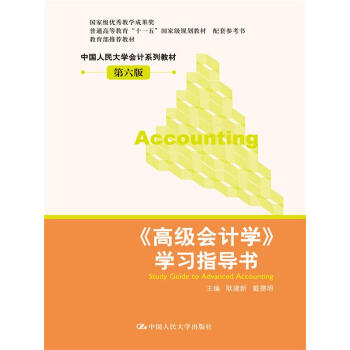
![生理学(第8版) 朱大年、王庭槐/本科临床/十二五普通高等教育本科国家级规划教材 [Physiology] pdf epub mobi 电子书 下载](https://pic.qciss.net/11277464/53c4e977Ne9f12e08.jpg)


